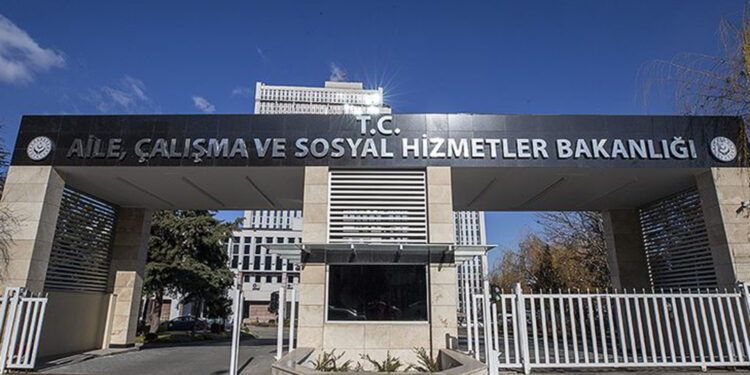Ankara- Obtaining a work permit has always been a real dilemma for foreigners and business owners in Türkiye, as strict standards and bureaucratic complexities pose a major obstacle to the smooth legal process.
This situation prompted many to accept work without obtaining official permission, depriving them of their legal and social rights such as health insurance and receiving the minimum wage, and leaving them vulnerable to exploitation.
In contrast, companies were facing legal and administrative risks, which led to instability in the labor market and an increase in the informal sector.
In this context, the Turkish Ministry of Labor and Social Security announced fundamental amendments to the criteria for evaluating work permits for foreigners, in accordance with Article (22) of the Regulations for the Implementation of the International Labor Law, which entered into force as of the first of this October.
New standards
The amendments included easing employment conditions and financial efficiency, and one of the most prominent of these amendments was canceling the requirement to employ 5 Turkish citizens for every foreign worker in institutions that achieve net annual sales of 50 million Turkish liras (about 1.47 million dollars) or more, which gave large companies greater flexibility. In employing foreign workers, especially those that rely on scarce skills.
The Ministry modified the financial efficiency standard to become more flexible, as it required that the paid-up capital of the institutions be 500 thousand Turkish liras (about 14 thousand and 700 dollars), or that their annual sales reach 8 million liras (about 235 thousand dollars), or that they achieve exports worth 150 thousand. At least one thousand dollars annually to employ foreign workers.
While the new facilities will be limited to a paid-up capital of 100,000 Turkish liras (about 2,940 dollars) or sales of 800,000 liras (about 23,500 dollars) until January 1, 2025.
The Ministry redefined the minimum wage for foreign workers, reducing the wages of executives and pilots from 6.5 times the minimum wage to 5 times, while it reduced it to 3 times for other managers.
For professions that require special skills, the wage was reduced to two times, while it was reduced to the minimum for workers in sectors such as tourism, which was considered a government move to reduce the costs of employing foreigners and provide more flexible job opportunities.
The amendments also exempted foreigners residing in Turkey for at least 3 years, in the last 5 years, with the exception of students, from employment and financial efficiency standards, with a maximum of 3 foreign workers per workplace. However, it stipulated that the number of foreign workers should not exceed the number of Turkish workers in the institution, and Syrians under “temporary protection” remained not covered by these exceptions, and were required to obtain work permits for secured jobs.
The amendments provided great facilities for workers in the technology and information sector, as they exempted specialists in fields such as software from employment and financial efficiency standards, provided that the number of foreigners in the organization does not exceed two. As for investments that require advanced technology, the government ignored some general criteria for evaluation in the event that they are not available. Turkish specialists.
The Ministry set the capital required to establish new companies at 500,000 Turkish liras (about 14,700 dollars), and if the foreign partner owns a share of 100,000 dollars or more, he is exempt from employment and financial efficiency standards. Until January 1, 2025, the Ministry will be satisfied with a minimum capital of 40,000 Turkish liras (about $1,176) for foreign partners.
Positive step
For his part, legal researcher Ibrahim Sayji, speaking to Al Jazeera Net, believes that developing Turkey and maintaining its global competitiveness requires attracting foreigners who are considered a qualified workforce or investors, thanks to their characteristics such as education and professional experience.
Sayji pointed out that it is in the country’s interest for international labor movements to be managed according to an ideal balance, by taking facilitative measures in some areas and preventive measures in other areas, with the aim of maintaining labor market stability and promoting economic growth.
Sayji said that foreign workers and company owners were suffering, due to previous obstacles, from obtaining work permits and organizing their legal status, and the new procedures came after many meetings with both the Ministers of Interior, Ali Yerli Kaya, and Labor, Widad Isik Han, where solutions were reached that aim to improve… The interest of foreign workers and companies that depend on them in various sectors.
Employee statistics
According to data issued by the Turkish Ministry of Labor, 316,365 foreigners applied for a work permit during the year 2023, and of these applications, the Ministry approved 239,835 applications, which means that 19.48% of the applications were rejected for reasons related to not meeting the required standards. .
In detail, the data shows that among the accepted applications were 66,299 women and 173,536 men. Statistics also indicate that 85,975 of the accepted applicants hold a high school diploma, while about 54,000 of them hold graduate degrees.
Syrians top the list of foreigners obtaining work permits in Türkiye, with 108,520 people, which reflects the prominent presence of Syrian workers in the country. While Russia comes in second place with 17,785 people, followed by Turkmenistan with 13,128 people, and Iran participates in this classification with 8,521 people.
It should be noted that these data only reflect foreign workers who work regularly in Turkey, or who have applied for an official work permit, while these numbers do not reflect the full reality of the labor market, as estimates indicate that there are thousands of foreigners who work illegally. Regular without obtaining official permits.



